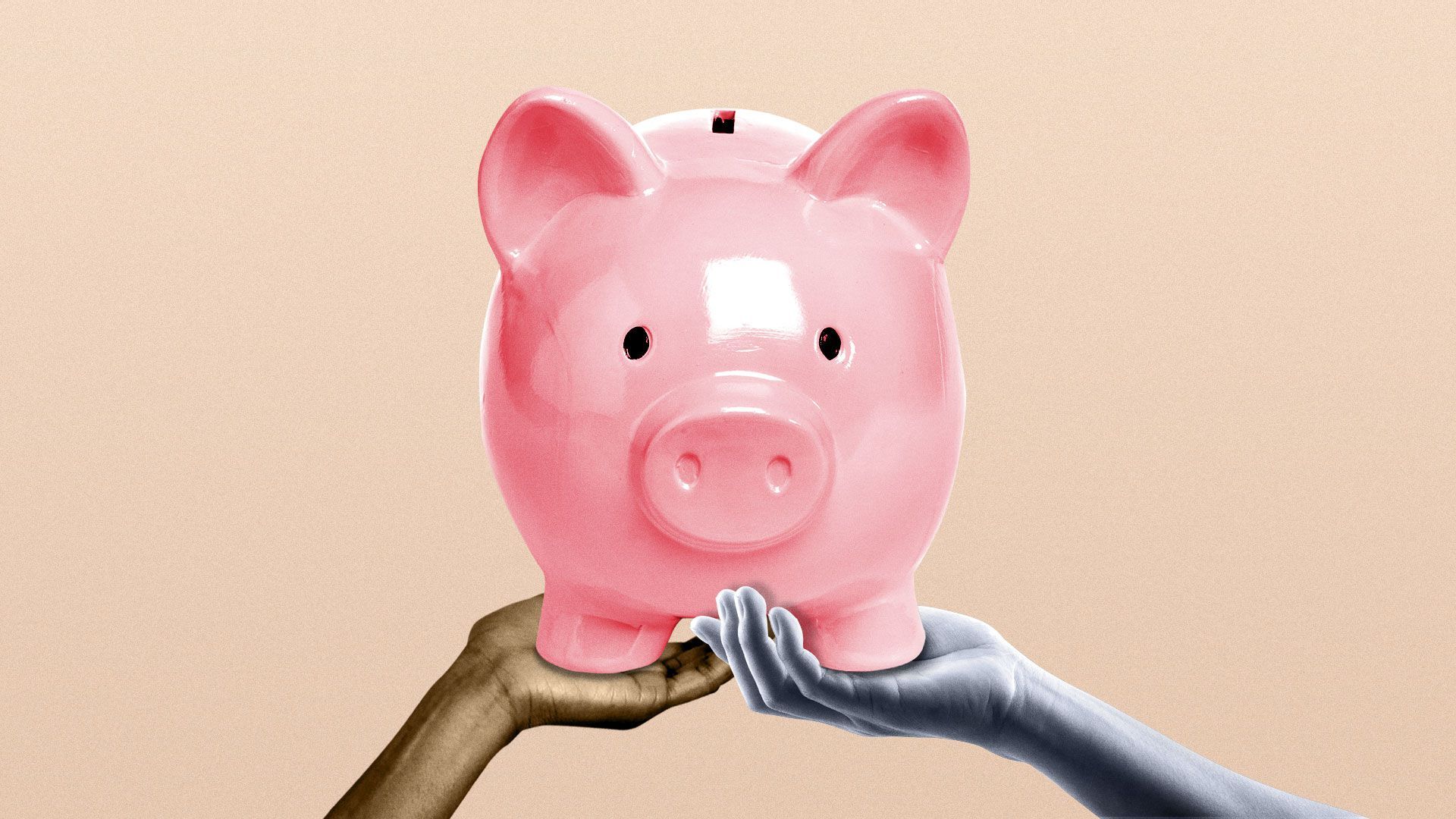Stir raises $4 million to help online collaborators split revenue
Add Axios as your preferred source to
see more of our stories on Google.

Illustration: Eniola Odetunde/Axios
Stir, a service that lets creators on new online platforms manage their businesses, has raised $4 million in seed funding, executives tell Axios.
Why it matters: The company, backed by heavy hitters in the creator economy, helps individual creators and journalists share revenue when they collaborate. This type of service could incentivize more creators to branch out on their own, expanding the creator economy as a whole.
"Stir is building all of the creator tools the platforms have failed to do for years."— Chad Hurley, co-founder of YouTube
Driving the news: The company, which is launching a public beta Tuesday, has raised a seed round from firms like Homebrew along with Ludlow and XYZ Capital.
- Individual investors include creator economy and fin-tech heavyweights, including Patreon CEO Jack Conte, Youtube co-founder Chad Hurley, Anchor CEO Michael Mignano and YouTube personality Casey Neistat.
- Other investors include Stripe's head of business development Justin Overdorff, creator Anthony Pompliano, creator economy expert Li Jin, and the Co-CEOs of Brex Pedro Franceschi and Henrique Dubugras.
- The company is founded by Facebook veteran Joseph Albanese and Amazon, Brex and Google veteran Kushal Byatnal. Albanese will serve as CEO and Byatnal will serve as CTO.
The big picture: There's been an explosion in creator collaborations across newsletter, social media and podcast platforms over the past few months, as more individual journalists and creators leave established companies to launch their own ventures.
- Many of those writers and creators, working with new technology companies like Substack, Patreon, YouTube, Twitch, TinyLetter and others have made the transition amid the pandemic. But those services don't always offer creators and writers the accounting tools they need to collaborate with other creators.
- Historically, collaborations were used to help creators grow their audiences — i.e. "you come on my YouTube show and I'll go on your podcast." But there wasn't a great way for creators to split the revenue from those joint efforts.
- One of Stir's biggest features, called "Collectives," helps creators share analytics, revenue, and back-office tools so that they can split ad and merchandise revenue.
- Stir's tools can be used for big collaborations, like splitting revenue on a YouTube series, or tiny collaborations, like one newsletter writer referring their audience to another newsletter.
How it works: "Before Stir, working with others was difficult since the incentives were hard to align on," says YouTube creator Eric Decker, known professionally as "Airrack," who got early access.
- Airrack splits its YouTube ad revenue using Stir with other creators. He also splits his channel revenue with his manager and his editor using Stir.
- The creators of the podcast "Socially Profiled with Adam Saleh and Slim Albaher" use Stir to split podcast revenue.
- "Stir allows for so much more flexibility and leverage for our podcast business," says the show's manager Chas Stahl. "Before, moving money around was slow and required tons of trust from all parties. Now we just add it to Stir and we know everyone is going to get their fair cut."
The company works with creators like Freddie Wong (9.0 million subscribers), Mythical (16.7 million subscribers) and Peter Hollens (2.5 million subscribers).
- It currently has integrations with YouTube, Patreon, Twitch and Shopify and it's working on integrations with podcast platform Anchor.
- Stir, like many of its peers in the creator economy industry, takes an undisclosed cut of each transaction. Companies like Square, Stripe, and PayPal take roughly 3%.
Bottom line: "We're trying to build a world where anyone can be a creator full-time. The power in numbers approach of collectives will enable new creator businesses to take shape that previously could not exist," says Albanese.
Go deeper: Pandemic spurs creators to go it alone
